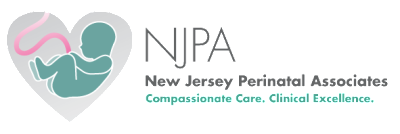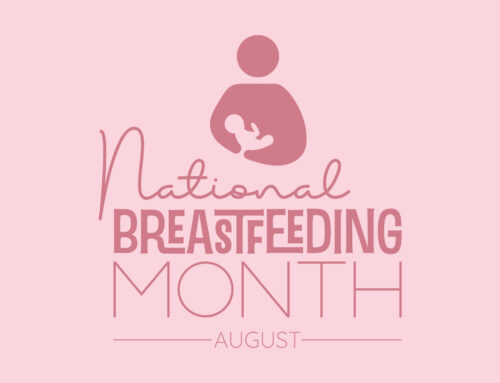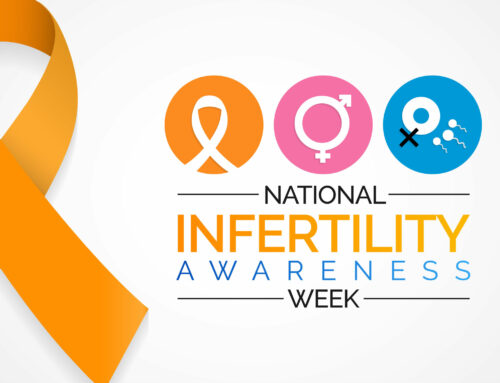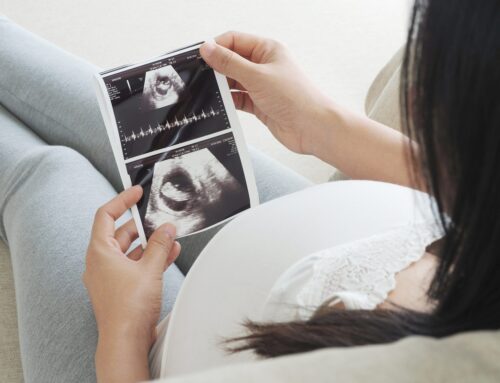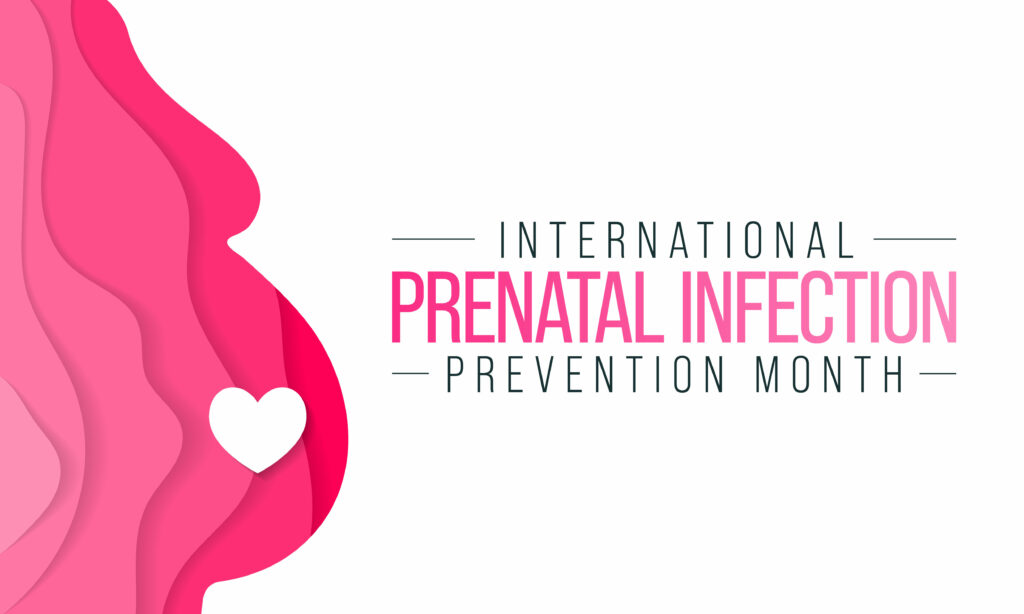
Pregnancy should be a time of excitement and joy, but for many expecting mothers, it’s also a time of worry. For over two million families worldwide, prenatal infections – viral or bacterial illnesses passed from mother to baby during pregnancy or delivery – result in infant death. While the United States has made significant progress in reducing the rate of prenatal disease transmission, it still remains a top priority for the US and a major threat for many countries across the globe. Fortunately, most prenatal infections can be prevented with healthy pregnancy behaviors. In February of each year, International Prenatal Infection Prevention Month is observed to promote awareness of common prenatal infections transmitted from a mother to her baby.
What is a Prenatal Infection?
A prenatal infection is an invasive growth of germs in the body that can affect the health of a pregnancy, the pregnant mother, or the baby after birth. The germs often travel upwards through the vagina and cervix. It is estimated that over 60% of women in the US have at least one infection over the course of their pregnancy, most commonly during the first trimester (first 12 weeks). Infections such as the common cold are very unlikely to cause serious harm, but others can affect the baby’s development and/or lead to preterm birth. Prenatal infections include, but are not limited to:
- Group B Strep (GBS)
- Bacterial vaginosis
- Cytomegalovirus (CMV)
- Listeria or listeriosis
- Fifth disease
- Hepatitis B virus (HBV)
- Hepatitis C virus (HCV)
- HIV/AIDS
- Human papillomavirus (HPV)
- Toxoplasmosis
- Zika
How to Prevent Common Prenatal Infections
At New Jersey Perinatal Associates, we’re here to educate you about prenatal infections and the right steps to take to prevent them – before, during, and after pregnancy. It’s important to practice good hygiene, receive routine prenatal care and immunizations, eat healthy, and take environmental precautions to avoid dangerous infections. Although not all infections can be prevented, certain pregnancy habits can help women drastically reduce their risk.
Prenatal Care
Pregnant women should be monitored by a healthcare professional for prenatal care to reduce the chances of pregnancy-related complications, such as infections. At NJPA, our team strives to provide each patient with individualized care and attention from the very beginning. The general guidelines regarding prenatal visits for healthy women include:
- Once a month for weeks 4 through 28
- Twice a month for weeks 28 through 36
- Once a week until birth
If you are older than 35, or if your pregnancy is considered high-risk, you will likely have more frequent visits.
Immunizations
Women should be up-to-date on all immunizations before they become pregnant. However, since pregnancy can be unexpected, this isn’t always possible. You should discuss your vaccination history and which vaccines to get during your pregnancy with your doctor. The Centers for Disease Control and Prevention (CDC) recommends that pregnant women get two vaccines during every pregnancy:
- The inactivated flu shot (the injection, not the live nasal spray) to protect yourself and your baby for several months after birth from flu-related complications
- The Tdap vaccine (ideally between 27 and 26 weeks) to protect yourself and your baby from pertussis, also known as whooping cough
There are some vaccines that pregnant women should not get, such as:
- Human papillomavirus (HPV) vaccine
- Measles, mumps, and rubella (MMR) vaccine
- Varicella (chicken pox) vaccine
- Certain travel vaccines: yellow fever, typhoid fever, and Japanese encephalitis
Get Tested for Prenatal Infections at NJPA
Pregnancy can be a stressful time for many expecting mothers and their families. Early diagnosis of prenatal infections is necessary to get a clear picture of both your and your baby’s health. At NJPA, our expert perinatologists proudly offer comprehensive and compassionate high-risk pregnancy care and treatment at our seven office locations in New Jersey, including care for various prenatal infections. We’ll do everything we can to ensure that you feel safe and comfortable throughout your time with us. Contact us to learn more about our services or schedule an appointment with a member of our team in NJ today!
